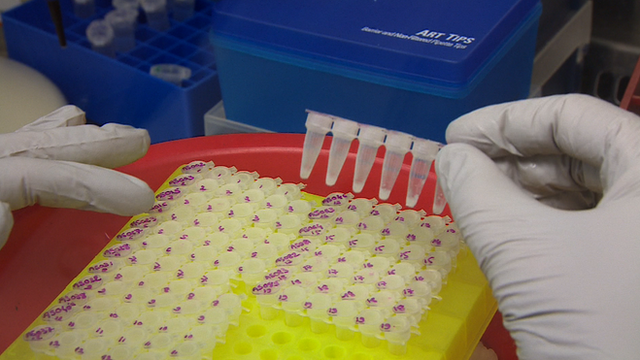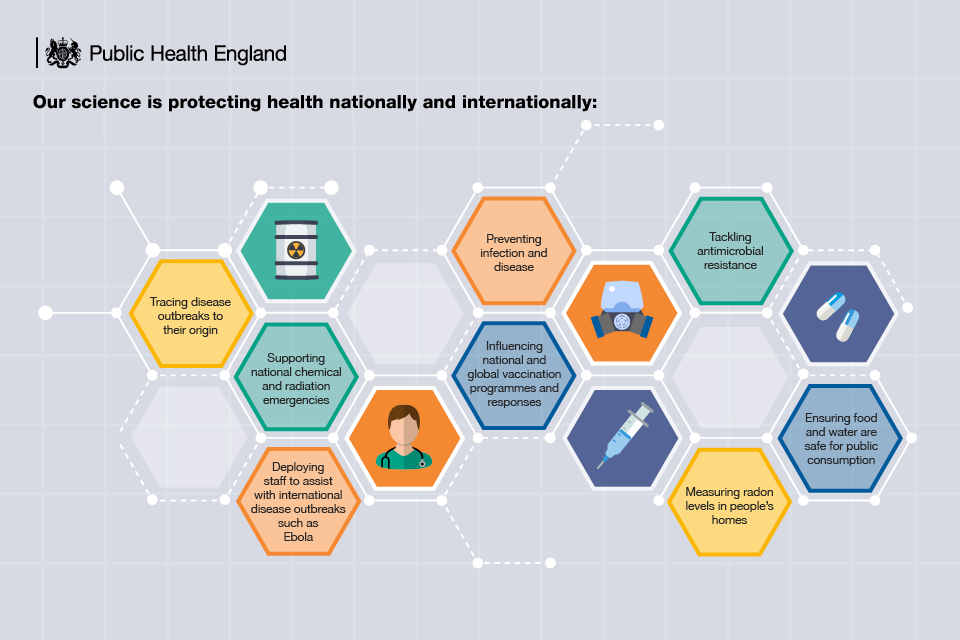
Next week PHE will host our fifth annual conference at the University of Warwick. As we prepare to bring together the public health community I’m taking a look with PHE colleagues at three key topics which are at the forefront of public health and which cut through many of our conference sessions: health inequalities, the economic case for prevention and the impact of world leading science on the public’s health, which I explore in this blog with Christine McCartney.
This year we are explicitly using our conference to promote world-leading science and evidence in every session.
At PHE we generate a good deal of our own scientific knowledge but of course we are not self-sufficient in this respect and are constantly using or reporting the work of others.
Nearly all good science is done in collaboration these days and we also support the work of many other science-based organisations.
It is worth reflecting on what we mean by science and why it matters. Science is not just another belief system that can be used selectively to justify our opinions.
Science is a rigorous framework that if well conducted makes accurate predictions about the future. We cannot pick and choose which scientific results we like or are most convenient, we need to identify the best methodology and rely on those results.
Scientists in government have a huge impact - from carrying out life-saving work fighting infectious diseases, to protecting the nation’s health using vital evidence.
In the UK, we are extremely fortunate to have exceptional scientists working within government, of whom PHE is one of the biggest employers, with over 2400 scientists in our workforce.

PHE covers a vast scientific remit, as our teams up and down the country work tirelessly to improve and protect the public’s health.
For instance, our National Infection Service (NIS) and our Centres across the country work continuously to stop the outbreaks of infections.
This includes infections such as norovirus and E. coli, with our epidemiologists collecting and analysing data, essentially working like detectives.
This means we can find the source of an outbreak, be it here or abroad, prevent people getting infected and find the best way to treat those who are already unwell.
In a similar way our nutrition scientists are constantly reviewing the evidence from epidemiological studies to understand the role of different nutrients in human health.
This knowledge is then carefully reviewed and tested by our scientific advisory committees before making recommendations to Government. It is the strength of the science that determines the impact of this advice.
Another major area for our scientists is the vital ongoing work being done in the fight against antimicrobial resistance.
While we rely on our scientists to conduct important analysis and research for example in PHE’s labs, there are also many partners and stakeholders such as pharmacists, local authorities, nurses, GPs and directors of infection prevention and control to name just a few that we rely on to make progress.
Collaboration across the healthcare system is vital to ensure we can use the knowledge and research we have in the most useful and impactful way possible.
There is a vast range of other scientific work being done across PHE which directly affects the health of the public.
Our Centre for Radiation, Chemical and Environmental Hazards is involved in responding to chemical incidents, carrying out research and advising government policy on reducing air pollution, as well toxicology experts who specialise in the effects and detection of poisons.
We also have a specialised team who research and test for radon in people’s homes and a small group who study the risks associated with light exposures.
Science and its huge impact is something to celebrate. It is not possible to name every team we have at PHE and list all the areas which our scientists work across, which is in itself a testament to just how far-reaching and rich the breadth of specialists we have is.

Some of our science work is truly transformational. This year we announced that microbial whole genome sequencing is now being used to identify different strains of tuberculosis.
This is a world-first, and along with the University of Oxford, means that our genomics team can offer the opportunities for faster, cheaper and more accurate diagnostics than other testing methods.
As an organisation, we play a leading role in the application of science at the forefront of global health, which includes the UK Public Health Rapid Support Team (UK-PHRST), funded by the UK Government and jointly delivered by PHE and the London School of Hygiene and Tropical Medicine.
We often speak about the involvement of our scientists on the ground in West Africa during the Ebola outbreak, but there is work happening all over the world to which our incredible scientists contribute, helping not only those further afield, but contributing as well to our research and knowledge here in England.
This is an extremely exciting and innovative time to be a scientist working in government. To ensure those in the field have the best opportunities, a new strategy for scientists and engineers in government was published this year, which will help shape the next five years for the science and engineering profession.
It’s obvious that PHE must not only work to improve and protect the health of the nation through the application of science, but also has a place to inspire the next generation of scientists.
For those attending our conference, look out for sessions on prevention of infection, surveillance and why it counts, working with the food industry and personalised prevention.
We will also be covering pathogen sequencing and molecular epidemiology as well as putting evidence into action for reducing air pollution.
The full programme is available here. Please also read yesterday's pre-conference blog on making the economic case for prevention.
